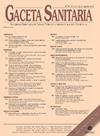HEIRES调查问卷:确保卫生研究的平等
IF 1.5
4区 医学
Q3 HEALTH CARE SCIENCES & SERVICES
引用次数: 0
摘要
目标性别和/或性别分类数据的收集、分析、展示和传播不足,导致生物医学研究、临 床试验、出版物和卫生信息系统中持续存在性别偏见,对医疗实践产生负面影响。此外,尽管采取了各种措施来促进参与研究团队的所有专业人员之间的平等,但许多科研机构和研究人员之间的性别差距依然存在。本研究的目的是创建一个工具,用于评估生物医学研究中是否纳入了性别观点。研究方法:分析了科学网(Web of Science)中收录的有关性别包容和生物医学研究的相关科学出版物,并对主要政府机构、资助机构和学术组织制定的指导方针和建议进行了审查。结果HEIRES问卷首次以横向方式评估了生物医学研究各个阶段(从团队组成到研究开发和传播)中性别观点的融入情况。最终结果是一个即时、客观的分数,专业人士、机构和政策制定者可以通过这个分数找出在研究和/或组织中融入性别观点方面的优势和需要改进的潜在领域。结论找出生物医学研究过程中存在的差距可以提高研究中心、团队和研究的质量,使其更接近更公平、更具包容性和平等的个性化健康方案。本文章由计算机程序翻译,如有差异,请以英文原文为准。
HEIRES questionnaire: ensuring equality in health research
Objective
The inadequate collection, analysis, presentation and dissemination of sex and/or gender disaggregated data leads to persistent gender bias in biomedical research, clinical trials, publications and health information systems which have a negative impact on medical practice. In addition, gender gap persists in many scientific institutions and among researchers, despite various initiatives to promote equality among all professionals involved in research teams. The aim of this study is to create a tool to assess the inclusion of a gender perspective in biomedical research.
Method
Relevant scientific publications on gender inclusion and biomedical studies indexed in the Web of Science were analysed, and guidelines and recommendations developed by leading governmental institutions, funding agencies and academic organisations were also reviewed. A panel of experts then used the Delphi method to identify useful variables for designing a questionnaire on gender inclusion in health sciences research.
Results
For the first time, the questionnaire HEIRES assesses the integration of a gender perspective in a transversal way at all stages of biomedical research, from team composition to study development and dissemination. The final result is an immediate and objective score that allows professionals, institutions and policy-makers to identify strengths and potential areas for improvement in the integration of gender perspective in their research and/or within their organisations.
Conclusions
Identifying gaps in the biomedical research process improves the quality of research centres, teams and studies and bring them closer to a fairer, more inclusive and equitable scenario towards personalised health.
求助全文
通过发布文献求助,成功后即可免费获取论文全文。
去求助
来源期刊

Gaceta Sanitaria
医学-公共卫生、环境卫生与职业卫生
CiteScore
4.10
自引率
5.30%
发文量
80
审稿时长
29 days
期刊介绍:
Gaceta Sanitaria (Health Gazette) is an international journal that accepts articles in Spanish and in English. It is the official scientific journal of the Sociedad Española de Salud Publica y Administración Sanitaria (Spanish Society of Public Health and Health Administration) (SESPAS).
The Journal publishes 6 issues per year on different areas of Public Health and Health Administration, including:
-Applied epidemiology-
Health prevention and promotion-
Environmental health-
International health-
Management and assessment of policies and services-
Health technology assessments-
Health economics.
The editorial process is regulated by a peer review system. It publishes original works, reviews, opinion articles, field and methodology notes, protocols, letters to the editor, editorials, and debates.
 求助内容:
求助内容: 应助结果提醒方式:
应助结果提醒方式:


